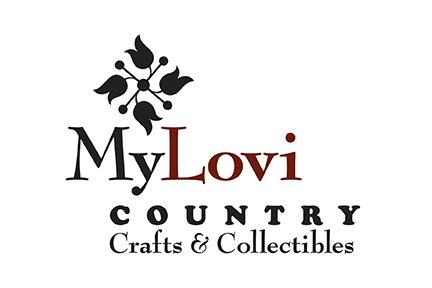Written by Patrice Lewis
It seems like such an easy thing to say bad things about your competition, especially if you have a legitimate reason. In truth, however, badmouthing can come back to bite you in the butt… big time.
Small Circles, Big Ripples
Let’s face it; the crafting circuit can be a small and intimate place. We often see the same vendors at different events. While it may seem like a smart move to talk down competing crafters in order to garner more sales for yourself, the opposite is true: unprofessional behavior will always come back to haunt you.
And invariably, badmouthing backfires among the very people you’re trying to impress – your customers. People recognize mean-spiritedness in a heartbeat and, as my experience demonstrates, badmouthers often drive traffic to the very vendor they’re trying to trash.
Badmouthing has larger implications as well. Event producers talk. If a vendor has a reputation for unprofessional behavior, word is likely to spread among different show producers, and that vendor may be dropped off the list of prospective booths. No one likes to deal with troublemakers.
Why Honey Works Better than Vinegar
To some inexperienced crafters, it may seem counter-intuitive to send clients to the competition, but that spirit of generosity is appreciated by customers and vendors alike.
Badmouthing your competition actually lends credibility to your competitor. If you’re scared enough to attack someone, it must be because you’re worried about them. In other words (the logic goes) the competition must be doing something right.
The old saying suggests you catch more flies with honey than with vinegar. Believe me, customers aren’t stupid. They’re going to recognize when you’re unfairly attempting to paint the competition as terrible. Negative talk says a whole lot more about you than it does about your competition.
Online vs. In Person
The same warnings apply toward online acid. Unlike verbal comments, whatever is written online (Facebook, blogs, websites, etc.) can be picked up, copied, forwarded, and cached. Just because you’re not dealing with customers in person doesn’t mean you can descend into unprofessional behavior online.
Remember, half-truths and innuendo can be just as damaging as flat-out lies about a competitor. And libel is a serious offense – don’t let yourself get sucked into shady behavior and risk getting sued because you’re annoyed by competition.
Competition as a Tool
Like it or not, competition exists. As with all marketplace conditions, healthy competition is a useful tool on which to hone and sharpen your business skills. If my booth is sloppy, unwelcoming, and full of acrimony, then I’ll drive customers toward the competition. The existence of competition keeps me on my toes and alert to what attracts sales or what drives away customers.
In some ways, badmouthing your competition smacks of laziness. It’s easier to complain about your competitor than to fix your own problems. But if you recognize what is driving customers to your competition, you’re in a better position to improve your own products, presentation, or service.
When the Competition Really is Bad
Now what happens when a competitor truly IS awful? What if their products are shoddy or their habits are unethical?
If you know for a fact (not rumor) that your competition is doing something shady or wrong, then there’s nothing wrong with looking after your customer’s best interests or guiding them away from something or someone unscrupulous. Much depends on your methods, however. Gloating over the competitor’s misdeeds is unprofessional.
Additionally, if your competitor’s behavior is dishonest or potentially criminal, you have an obligation to report them to the event coordinator. Remember that in this litigious age, people are just as likely to file a lawsuit against an event as they are against a vendor. The event producer needs to know if something’s wrong.
Fix the Mistakes
If you’re guilty of badmouthing the competition and are driving away customers as a result, you should immediately change your habits. A genuine apology for your behavior to the maligned business can also result in tremendously improved relations with your fellow crafters. We’ve all made mistakes, after all, and those we think the most highly of are those big enough to admit their mistakes and atone for them.
Don’t be foolish. Keep your unjust complaints to yourself. Win the loyalty of your customers by treating people (including competitors) right, not wrong. Gain a reputation for being a generous and honest person, not by being a sourpuss and a complainer.
To read the article by Patrice Lewis in its entirety, you can find it on The Crafters Report.
